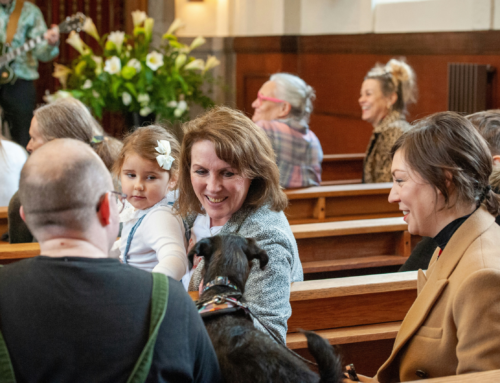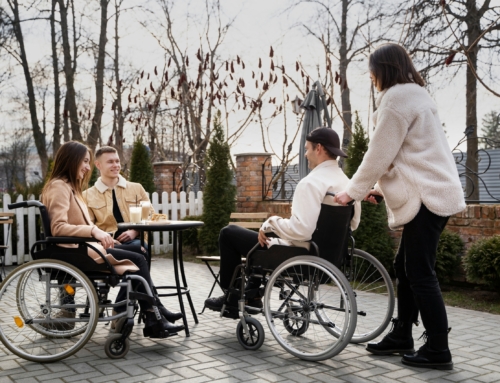He stands in front of me, his blue eyes searching mine. I know he’s going to ask the question, and I dread it. It comes, the same question Jesus asked Peter: “Do you love me, Mike?”
I knew the question was coming because Francis asks it of me at least once every shift. I work in the group home for people with developmental disabilities; Francis lives here. When he asks, I always respond in the same way, the way I have been trained to respond. “I like you, Francis. I’m glad I get to spend time with you.”
Francis has Down syndrome and early-onset Alzheimer’s disease, and I am not who he thinks I am. He believes me to be his “Big brother Mike”—the only family member who has visited him during the endless lockdowns of 2020 and 2021.
But I am not his big brother Mike. I am his support worker, his paid caregiver, working my scheduled hours. And my time is very much divided between him and his four housemates.
I remind Francis who I am, and he chuckles as if I’m doing a bit. “Okay, Mike. Okay.” He doesn’t believe I’m not his brother. He doesn’t believe me when I tell him that I only like, and not love, him.
And he is right not to believe me. I do love Francis, despite myself and all my boundary training and carefully worded statements on professional ethics. These boundaries and the trainings that reinforce them are right, and necessary. I have seen the consequences of the failure of well-meaning staff to maintain them, and the result is always the pain and the increased vulnerability of the person being supported. I will maintain boundaries. I will keep to the code. But it would be a lie to say that I don’t love Francis, too. How could I not? He loves me and calls me his brother.
I have become his brother because he believes me to be, and treats me as his brother. He believes me to be more than I am, and capable of a greater love than I am. Because of his belief in me, I become.
I serve him and his housemates better. I am no longer a burnt-out professional trying to fulfill too many contractual obligations with not enough time and resources. I am a brother among brothers, doing what family does: whatever needs to be done, no matter how hard or how long it takes. I am no longer trying to operate on my own limited reserves of patience and kindness. I have the strength of a brother looking after a brother. I relax. I start to have fun. We all do. He ain’t heavy, etc.
I live up to the expectation he has of me. I am better than I was, than I thought I could be. Though I cannot say the words that would betray my training, we have a bond in these moments that raises me above my station as unfortunately necessary paid support.
We are humans in relationship with one another—as two humans who spend as much time together as we do must be. Francis has named that relationship brotherhood, if I can bear it.
“See what kind of love the Father has given to us, that we should be called the children of God; and we are.”
There is a deep mystery at work here, a metamorphosis that repeats in countless spaces. God loves us as His children, though we have no right to the title or reason to believe we should be called such. Just as this love called creation into existence, so we are transformed by the Father’s love.
He calls us His children, and that is what we have become. No matter how much our history, our memories, or our outward circumstances might suggest otherwise, that is what we are, if we can accept it.
In a strange and awkward and prophetic echo of this, I am transfigured by the brotherly love Francis has for his real brother, that he has “mistakenly” bestowed upon me. As God calls us to eternal love beyond our transitory and fleeting existence, so Francis has called me beyond my mere job into the gift of brotherhood.
Everywhere we go we are being called brother and sister, daughter and son, mother and father. Everywhere we go we are being called into relationship with the lonely and the forgotten, the sidelined and the left behind. Everywhere we go voices are calling us to be more than we ever thought we could be. May we all have the faith to call one another into the reverberations of the love of God, and to answer that call when it comes.



